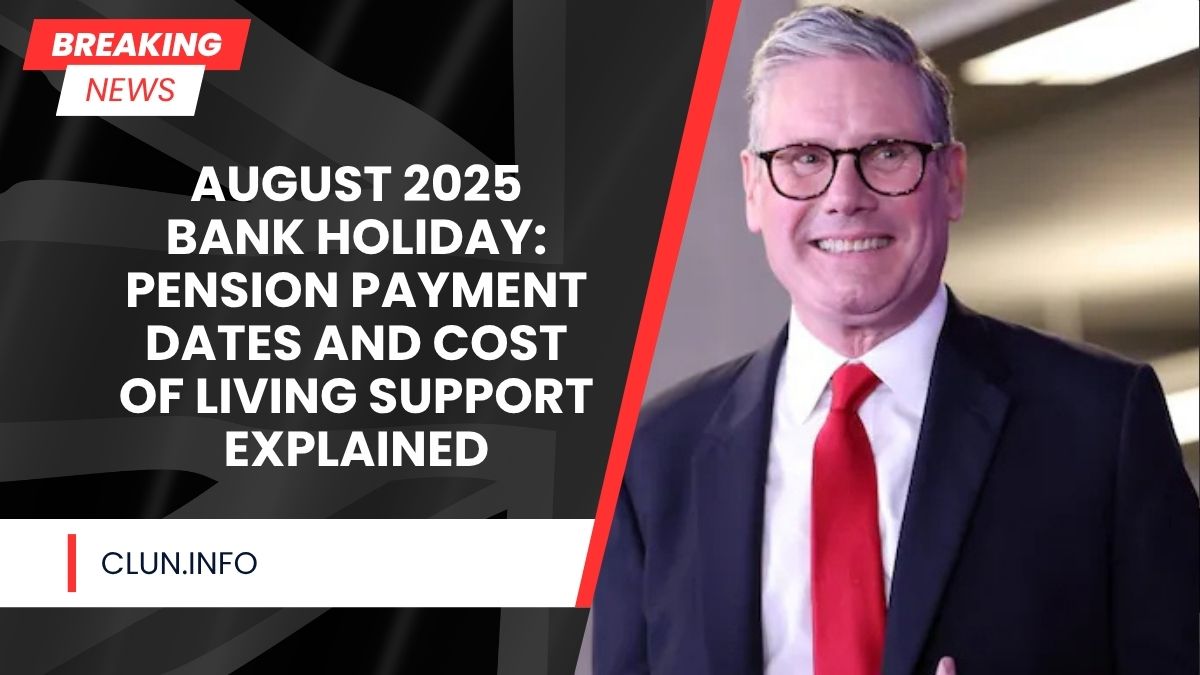Despite the cost of living crisis supposedly peaking in 2022, millions of UK residents continue to struggle with day-to-day expenses. The Resolution Foundation reports that essential items remain costly even as inflation falls back to pre-pandemic levels.
Unfortunately, stagnant wages and soaring household bills have left many in debt just to cover necessities.
In January 2025, The Food Foundation recorded that 7.3 million adults (13.9% of households) faced food insecurity, a figure still well above pre-2022 standards. Meanwhile, energy debts have surged to £3.9 billion—more than doubling in five years.
Are You Missing Out on Unclaimed Benefits?
With around 24 million people now receiving DWP-administered benefits, nearly one-third of the population depends on this support. However, £23 billion in benefits remains unclaimed each year, according to Policy in Practice.
Individuals can use online tools to check eligibility and uncover hidden entitlements.
August 2025 Benefit Payment Dates: What You Need to Know
Benefit payments will proceed as usual throughout August, but note the Summer Bank Holiday on Monday, 25 August. If your payment is due that day, it will arrive early on Friday, 22 August.
Benefits affected include:
- Universal Credit
- State Pension
- Pension Credit
- Child Benefit
- Disability Living Allowance (DLA)
- Personal Independence Payment (PIP)
- Attendance Allowance
- Carer’s Allowance
- Employment and Support Allowance (ESA)
- Income Support
- Jobseeker’s Allowance (JSA)
The DWP aims to complete the migration of all legacy benefits to Universal Credit by January 2026. Households receiving tax credits, income support, JSA, or housing benefit should have already been notified.
August State Pension Payment Schedule
The basic state pension is directly paid into your bank every four weeks, based on the last two digits of your National Insurance number:
| NI Number Ending | Payment Day |
|---|---|
| 00 to 19 | Monday |
| 20 to 39 | Tuesday |
| 40 to 59 | Wednesday |
| 60 to 79 | Thursday |
| 80 to 99 | Friday |
Benefit & Pension Rate Increases 2025–2026
From April 2025, all working-age benefits rose by 1.7%, aligned with the September 2024 inflation rate. This includes Universal Credit, PIP, ESA, and others.
The state pension increased by 4.1% (roughly £472 a year) due to the triple lock guarantee, matching 2024’s wage growth.
Under the Labour government’s welfare reform, all Universal Credit recipients will get above-inflation rises through to 2029. The first rise in April 2026 will be at least 2.3%.
However, the health-related element of Universal Credit for new applicants will be reduced from £105 to £50 per month, and frozen until 2029. This results in a monthly reduction of over £200, so eligible claimants should apply as soon as possible.
Other Financial Assistance Available
Budgeting Advance Loans
Available for those on Universal Credit dealing with emergencies. Loans are:
- Interest-free
- Deducted from UC automatically
- Repaid over 2 years
Loan Amounts:
| Household Type | Max Loan Amount |
|---|---|
| Single | £348 |
| Couple | £464 |
| With Children | £812 |
From April 2025, benefit deductions to repay loans are capped at 15% of the standard allowance (down from 25%).
Discretionary Housing Payment (DHP)
This payment assists with rent shortfalls, deposits, and advance rent.
To qualify, you must receive either:
- Housing Benefit
- Housing Element of Universal Credit
Apply via your local council—each has its own rules and funding availability.
Household Support Fund (HSF)
Distributed by local councils, this fund offers:
- Help with essential appliances
- Utility bill support
- Direct payments up to £300
It runs until March 2026 and will transition into the new Crisis and Resilience Fund with £1 billion in government backing.
Charitable Grants
Many charities offer targeted grants for people who are:
- Disabled or ill
- Carers
- Bereaved
- Students
- Unemployed
Eligibility varies, and funding is usually limited. Turn2us offers an online tool to explore available grants.
Energy Bill Support
Suppliers like British Gas, EDF, Scottish Power, E.ON, and Octopus may offer aid. It’s worth contacting your supplier directly to check for eligibility.
Council Tax Discounts
If you’re on benefits or facing hardship, you may get up to 100% off your council tax.
Some councils may also offer discretionary reductions for those in severe financial trouble.
Free Childcare Expansion
Currently, working parents get 30 free hours weekly for children aged 3–4.
Recent Expansions:
- From April 2024: 15 hours for 2-year-olds
- From September 2024: 15 hours for children aged 9 months+
- From September 2025: 30 hours for all children under 5
Parents must apply online and reconfirm every three months. You can also benefit from Tax-Free Childcare: 20p added for every 80p paid, capped at £500 yearly.
Energy Price Cap Update
Ofgem’s price cap dropped to £1,720 (July–Sept 2025), down from £1,849—a 7% decrease. This follows three consecutive increases and offers much-needed relief.
Cost of Living Payments: Will They Continue?
The DWP has not announced any further Cost of Living Payments for 2025. The final installment was delivered between 6 and 22 February 2024.
Mental Health Resources
Struggling with the pressure? Support is available:
- Samaritans – Call 116 123 anytime
- Mind – Support line: 0300 102 1234, Benefits line: 0300 222 5782
- Scope – Community forum for disability support
- NHS England – Online mental health triage service
As the UK continues to navigate economic uncertainty, being informed and proactive is essential. With new benefits, updated payment schedules, and expanded support programs, there are multiple ways for households to receive the assistance they deserve.
Make sure to check eligibility, apply early, and stay informed about your financial entitlements—especially ahead of key dates in August 2025.
FAQs
When will Universal Credit increase again?
Universal Credit will see an above-inflation rise in April 2026, continuing yearly until 2029 under the Labour welfare reform bill.
How do I apply for the Discretionary Housing Payment?
You must be on Housing Benefit or the housing element of Universal Credit. Apply through your local council—most offer an online form.
Can I still get a Cost of Living Payment in 2025?
No. The final payment was issued between 6 and 22 February 2024, and there are currently no new payments scheduled for 2025.




